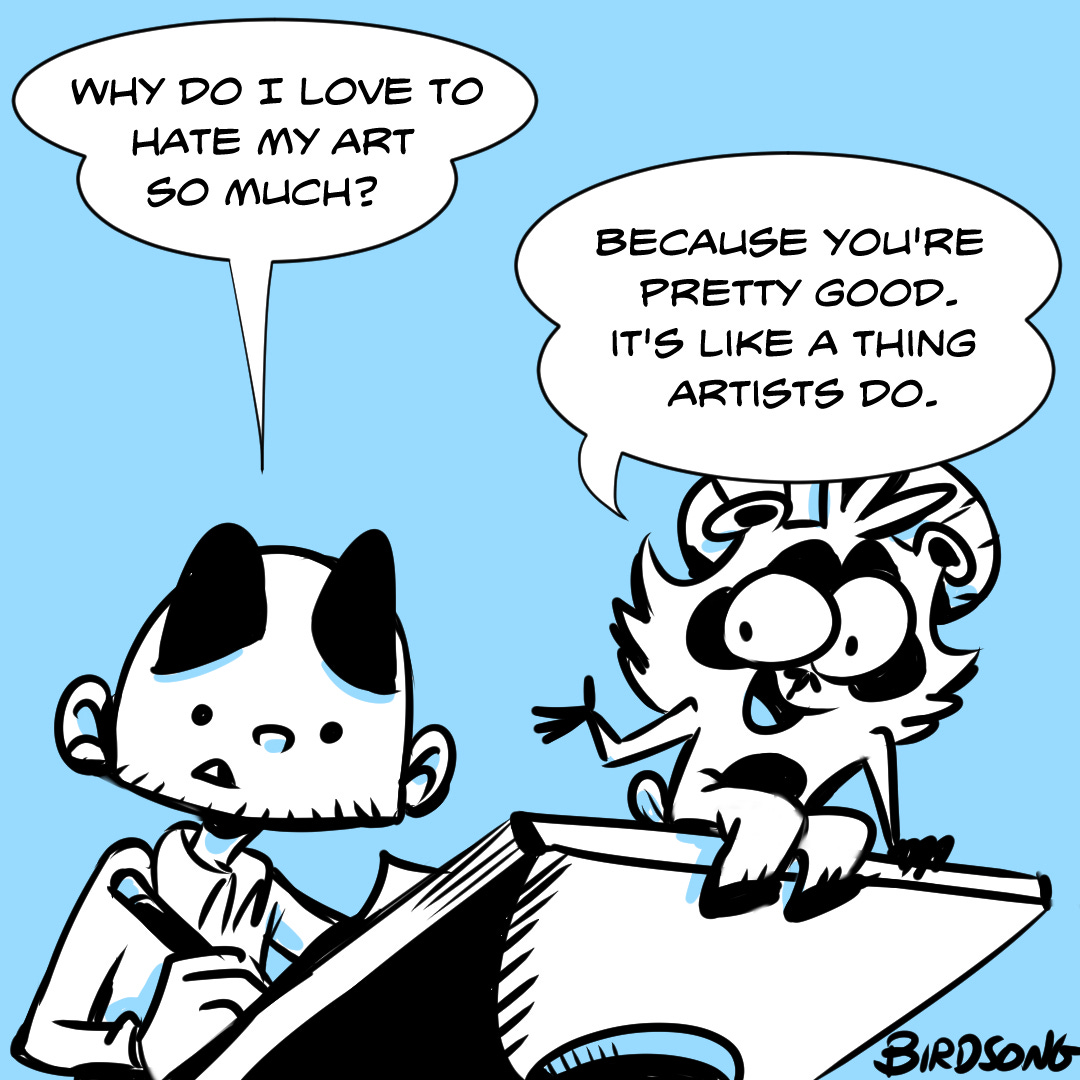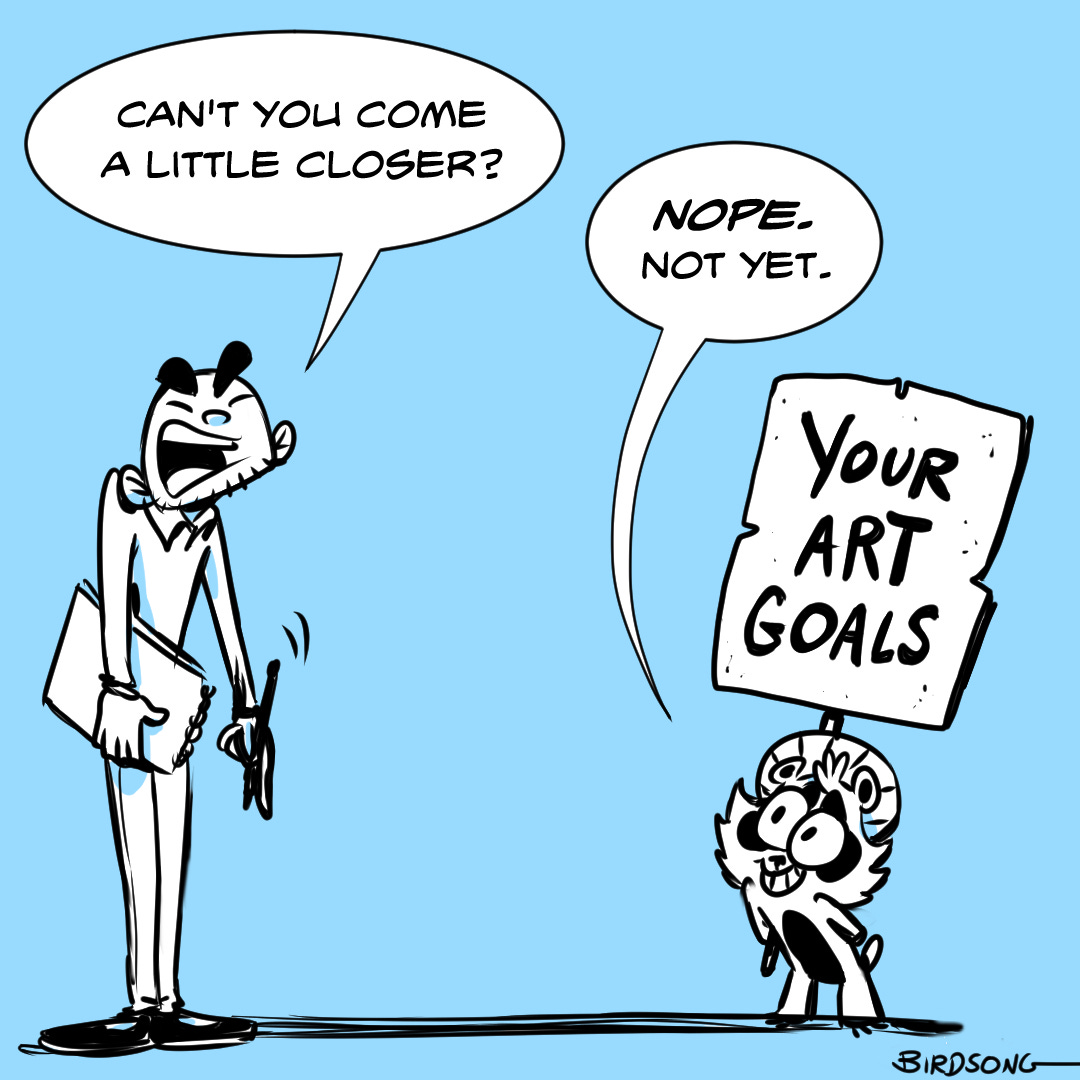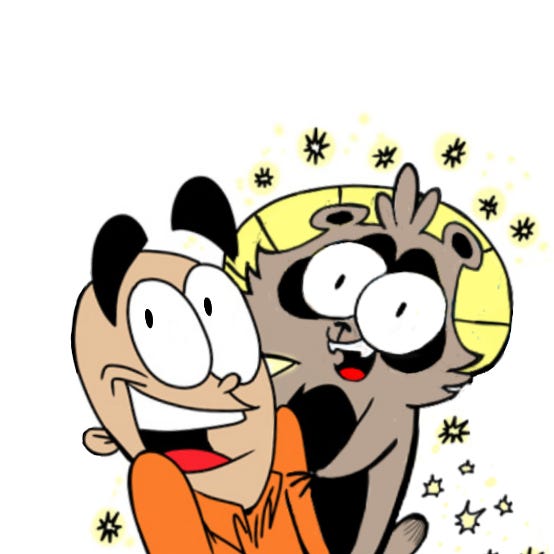Why You Should Dislike Your Art a Little
Be both honest and optimistic at the same time.
Every creative person hates their work at some point.
I had a middle school student, let's call her Alyssa, who was amazingly talented at drawing. She would drive me crazy because she constantly talked about how terrible her art looked when it was actually beautiful.
When you've been an art teacher for over twenty years, you get used to hearing students put down their art during class as a tactic for attention, mostly so someone next to them can look at it and then say it's terrific and the student feels better.
Alyssa was different. Because she knew how to doubt her skills, she didn't let that doubt stop her from practicing daily and growing as an artist.
She's in high school now, excelling in art, still doubting herself, but putting in practice daily. Her ability to live with being good but not quite good enough and still staying confident enough to put in the effort to improve will make her a successful artist in the future.
Whether you're an artist, a writer, or a musician, you must become comfortable living in a world of not feeling good enough just yet to keep working on getting better.
In his book, Mastery, author Robert Greene talks about how to work with your doubts to become the best at what you do.
Accept reality but avoid extreme emotions
I instantly feel fear when I try to learn to draw something new, like an old beat-up car. What if my drawing turns out to look terrible? I'm no good at drawing mechanical objects; there's no way I can do this!
I have enough experience to notice myself spiraling into a whirlpool of doubt, and I can't let it take me deep down.
The confident artist part of me breaks in and shouts, "Shut up and start drawing!" If you put the pencil on the paper and go for it, no matter how your drawing turns out, you've risen above your fear.
“In any event, you must avoid emotional extremes and find a way to feel optimism and doubt at the same time — a difficult sensation to describe in words, but something all masters have experienced.”
-Robert Greene, Mastery
Let your mind know you won't let doubt stop you. Fearing the unknown or noticing your resistance to taking risks is normal, and it's important to remember you can feel more than one way about a new creative endeavor while you're working on it.
You can be painfully honest with yourself about your skill level and, at the same time, optimistic enough about your growth to keep trying even if you can't see the improvement yet.
Own the fact that your emotions cannot control you. Let them be what they are, and know that you decide what to do with how you feel.
Make those doubts into motivation to work harder on what you cannot do well. Even when you learn to tone down your emotions, you must be prepared to do the work necessary to get better.
Push past the doubt and do the tedious work
None of my art students like drawing hands, and they're challenging and take years to master. The only way to improve is to draw hands multiple times over many years.
There are no shortcuts.
The fact that you have to practice something repetitive or boring to learn to do it well, to the point where you're not even thinking anymore, is hard for the average person to swallow.
“Once you look at your work with intensity and doubt, you will lose your optimism and your love of what you do. Avoiding these problems takes practice and often some experience — when you have pushed past the doubt before, you will find it easier the next time.”
-Robert Greene, Mastery
I had trouble making learning the fundamentals important when I was younger because I thought they were boring. My strong desire to draw superheroes and make comic books helped me learn more about practicing anatomy and facial expressions.
Only wanting to draw better wasn't enough. Getting obsessed with an end goal and convincing yourself you can reach it will help you put in the time to learn the basics.
Looking at it like shooting hoops daily to get better at basketball helped my mindset. I had friends who dreamed of getting into the NBA and were out on the court every day practicing and playing with friends with that hope firing them up to do whatever it took.
I knew growing as an artist could be boring. Even becoming a good writer takes writing—a lot, and you have to accept that and enjoy the process.
Dislike your art but don't hate it
It's OK to feel like your art or writing isn't where you want it to be. Use that to get excited to make more and grow.
If you hate everything you make, it might be easier to climb back out of the doubt pool and succeed if you understand yourself enough to know what gets you fired up to conquer new challenges.
It's easy to doubt your skills and use that as an excuse to give up—mainly so you won't have to do the everyday mundane practice it takes to get better.
I had to learn to love the practice like my friends on the basketball court loved to ball.
Living in between the feelings of discouragement and hope for the future of where you can go is how you grow and improve quickly.
There's nothing wrong with disliking your art, and I've seen many students learn to work with themselves and realize their dreams.
Feeling down about your art isn't a weakness. Make it your strength.
You'll reach mastery when you can continue practicing the fundamentals and put your work out there for others to see. Try out new ideas while managing those very real positive and negative emotions.
Some of my new readers might not know who the animal above is in the comics.
He’s a Japanese raccoon called a tanuki. In my comic strip, Fried Chicken and Sushi, and Little Fried Chicken and Sushi, about living in Japan, I put him in as a magical and mischievous character.
He talks with the main character, Karl, a cartoon version of me, and primarily works like his conscience.






I love this. Hits home for me right now in my art practice.
"Just work on getting better".....I Love it Phil!!